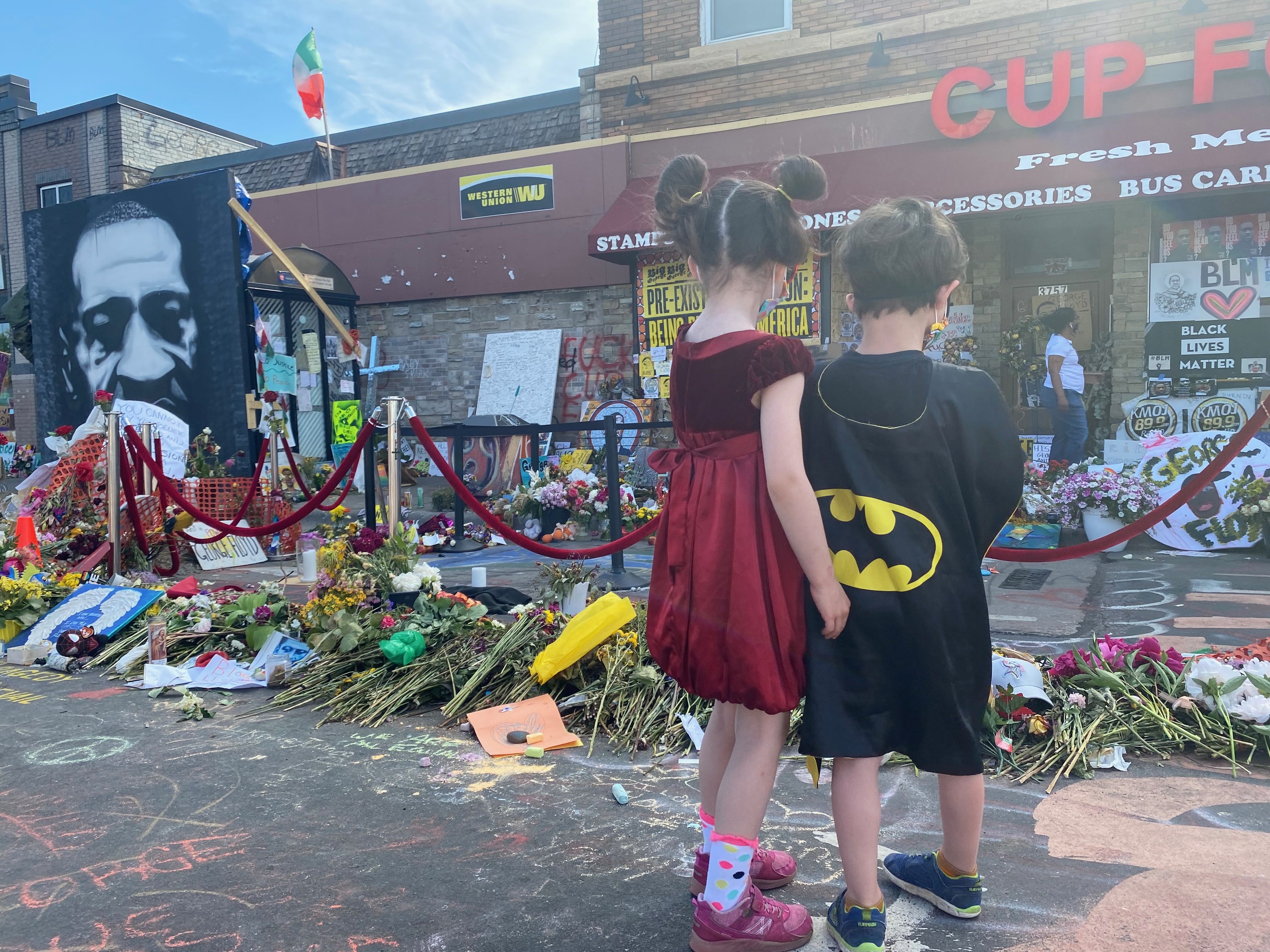How to talk to your white kids about racism

By Natalie Oleson • JFCS Counselor
It has been a tough couple of months. Like many of you, I was left reeling after video footage surfaced of a police officer killing George Floyd by kneeling on his neck. I was especially struck by the calm and relaxed demeanor the officer had, as if he was completely unaffected by the man pleading for his life.
In my personal and professional circles, the question on many people’s minds seems to be, “What can we do to change this?” There are a range of answers; few of them simple. But when I have stopped to truly examine my views about racial justice, I realize that most of my blind spots originated in my upbringing and my education.

I was raised in suburban Minnesota, by white, middle-class, well-meaning parents. Like many of you, I was taught to treat everyone equally, and to celebrate diversity. School taught me a little bit about slavery, and the Civil Rights movement. It also made me think racism mostly ended in the 1970s, and did not explain the racial injustices still happening today. My family did not openly discuss racism often. There was a lot I did not understand about other people’s lived experiences until well into adulthood (and much of that I learned in the past few weeks!)
I learned a new term recently: anti-racist. It is not enough to say we are not racist; because at our core, all of us carry some racial bias. According to Ibram X. Kendi, (who wrote the book “How to Be An Antiracist”) anti-racism is the active process of noticing, addressing, and correcting racism. Below are some tips for being anti-racist, and how to raise kids to be anti-racist:
Educate yourself. Much of what we learned in school was not centered around anti-racism. At best, it was white-washed; at worst, it was factually inaccurate (and usually made white people look better than they were). Ignorance and racism go hand-in-hand. There are many books, articles, podcasts, movies, Netflix specials, videos on YouTube, and more to help fill in these gaps. Try to focus on things written and produced by Black people. I have provided links to resources at the end of this article, including book lists both for adults and for kids. Also, pay attention to what your kids are learning in school, especially about the Civil Rights movement. Have discussions at home about what information they are missing.
Read books to your kids about racism. This should go beyond books about celebrating diversity (although those are good too). This can help facilitate a discussion about racism, and how the lived experiences of people of color are so different than those of their white counterparts.
Start young. Read these books to your toddlers, even though they won’t be able to grasp the information. It will make it easier to keep bringing up these topics as they get older. Like teaching your kids colors and words, it’s best to start with the basics. Once they have a good understanding of those, you add in more and more complexity.
When they are a little older, explain that rules and laws are not always right and just. Rosa Parks and Dr. Martin Luther King Jr. were breaking laws that were eventually changed. Explain to your kids that bad laws get changed because brave people break them, and are often punished for doing so.
Expect questions – be ok with not knowing the answers. It’s ok to admit you don’t understand why racism exists, or why these terrible things are still happening. Do some research together. Help your kids understand that the experiences of other people are valid, even if we cannot understand them. Teach your kids to listen to those who look and sound differently from them, without judging or assuming.
Don’t let your own discomfort keep your kids ignorant. Many parents shy away from these topics because they don’t want to scare their kids. That is white privilege. Black and Brown parents have to have these conversations to try to keep their children alive. Black parents especially have to provide rules for when their kids interact with police officers. My parents never had to do that with me; I was taught to call the police if I was in trouble. Talk to your kids about these differences, and help them work through uncomfortable feelings that may arise.
Ultimately, the best way to raise anti-racist kids is to be anti-racist yourself. Talk about racism often. Point out the lack of diversity in TV shows, YouTube videos, books, and other media (or how people of color are portrayed). Take your kids to protests, or explain why people protest if you are not comfortable going yourself. Introduce your kids to non-white people. Call out your friends and family members for using microaggressions (there is an article at the end that explains this further, if you are unfamiliar with the term), and saying racist things. Do this in front of your kids, if appropriate. Talk to local, state, and federal officials about racist policies; include your kids if you can. Teach your kids that at our core, our color does not make us different; it is our society that has created the racial divide.
Resources:
- More tips about talking to kids about racism: https://booksforlittles.com/racial-diversity/?fbclid=IwAR39vJQQyCnHfhF0m66o67GnGgR9BuWclmDQJXBQuUwznf1-YxaZxSzM_l4
- Resources/books for kids: https://www.embracerace.org/resources/where-to-find-diverse-childrens-books?fbclid=IwAR3yAbNG2u4u0i8aTH404cfDM5G_X3rCgXjpjWxFc_EoAFkSfuhz_bUyppw
- List of Black-owned bookstores: https://www.buzzfeednews.com/article/ariannarebolini/black-bookstores-black-authors-books?bftwnews&utm_term=4ldqpgc#4ldqpgc
- Anti-racist books for adults: https://nymag.com/strategist/article/anti-racist-reading-list.html
- Definition of microaggression: https://www.usatoday.com/story/news/2018/02/28/what-microaggressions-small-slights-serious-consequences/362754002/
